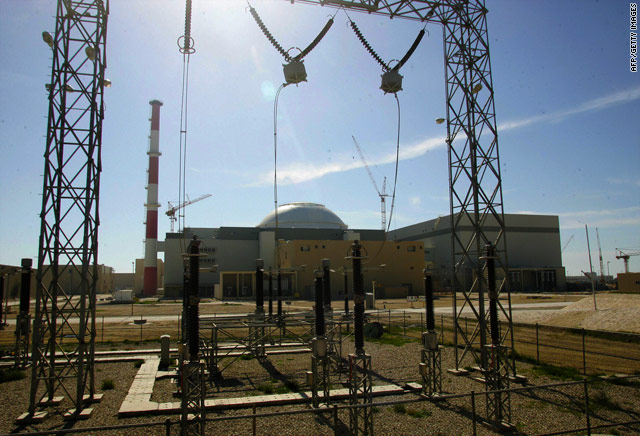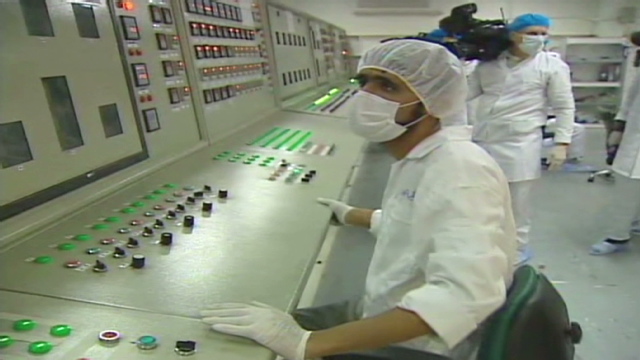- Iran's negotiator says Iran's rights are not being respected
- Representative: P5+1 countries refused to accept preconditions
- Western officials say the first day of talks were contentious at times
- Iran insists its nuclear facilities are working for civilian energy needs
Istanbul (CNN) -- The European Union's top diplomat expressed disappointment at the conclusion of two days of talks with Iran about its controversial nuclear program, saying the six countries she represented refused to accept preconditions demanded by the Iranian delegation.
"We had hoped to embark on a discussion of practical ways forward," Catherine Ashton said at a press conference Saturday. "I am disappointed to say this had not been possible."
Ashton said the five permanent members of the United Nations Security Council -- Russia, China, France, the United States, and Britain -- and Germany, referred to as the P5+1, came to the negotiating table with an updated proposal for a nuclear fuel swap for Tehran's research reactor.
Two prior nuclear fuel swap deals have collapsed after previous rounds of negotiations.
 Explainer: Enriching uranium into fuel
Explainer: Enriching uranium into fuel  Iran's nuclear program self-sufficient?
Iran's nuclear program self-sufficient?  U.S. fears Iran has long-range missile
U.S. fears Iran has long-range missile "We had hoped to have a detailed and constructive discussion of those ideas," Ashton said. "But it became clear the Iranian side was not ready for this unless we agreed to preconditions regarding enrichment and sanctions."
Ashton dismissed these preconditions, saying they were "not a way to proceed."
Moments after the European diplomat spoke to journalists, Iran's lead negotiator, Saeed Jalili, took the same podium.
The Iranian diplomat spoke at length in Farsi about "common logic" and the need for "respect between nations," avoiding mentioning the word "nuclear" for the first five minutes of his speech.
He sought to deflect criticism of Iran's nuclear program by pointing to the fact that countries like Israel wield nuclear arsenals but do not face sanctions from the U.N. Security Council.
Jalili also drew attention to the mysterious killings of two Iranian nuclear scientists in Iran last year, asking why the Security Council had not addressed the matter or widespread reports of foreign "cyber attacks" on Iran's nuclear program.
"We see an attack by terrorists against our scientists," Jalili said. "This is a fiasco on behalf of the Security Council. I think it has to be accountable to the international community for this."
Both sides concluded their remarks insisting that they are still open to further discussion of Iran's nuclear program.
Later, Jalili appeared on CNNI's "World Report," saying Iran is "ready for cooperation and talks."
However, he cautioned that "these talks should be within the context of respecting the nation's rights and putting aside ... hostile measures."
Tehran now appears to be facing a united front from the P5+1, which includes Russia and China, two countries that in the past defended Iran's right to nuclear technology.
During what appears to have at times been a contentious day of talks, Western officials said the Iranian delegation tested the unity of P5+1.
"She was very solid. She didn't fall into any of their traps," said a Western diplomat, speaking on condition of anonymity, about Ashton.
The diplomat claimed that Jalili "realized that the six are solid and that the six mean business."
Before the discussions even began in a 19th century Ottoman palace overlooking the waters of the Bospohorus Strait, Iran officials declared that they would not allow any discussion of suspending Iran's controversial uranium enrichment program.
And during a mid-day break on Friday that involved a trip across town to pray at Istanbul's famous Blue Mosque, a member of the Iranian delegation repeated this tough negotiating position.
"We will not allow any talks on the halt or suspension of uranium enrichment activities in Iran to be raised in the Istanbul talks," said Abolfazi Zohrehvand, a spokesman for Iran's Supreme National Security Council, according to Iran's Fars News Agency.
"There has been no word on enrichment at the talks at all and our country's nuclear rights have not been an issue on debate either," he added.
Another Western official says the P5+1 countries "summarily rejected" the Iranian delegations demands at the outset of the talks to establish "preconditions" which included accepting a full nuclear fuel cycle for Iran and the removal of sanctions.
Last year, the Security Council imposed a fourth round of sanctions on Iran as punishment for its "lack of compliance ... on ensuring the peaceful nature of its nuclear programme."
Iran insists its nuclear facilities are working to develop technology for civilian energy needs.
Analysts have wondered what Iran wants to accomplish with the talks.
"Iran wants to widen the nuclear discussions to disarmament and to the case of Israel, and does not appear to be willing to talk about the Iranian nuclear dossier which originally prompted the P5 plus 1 process," wrote Ollie Heinonen in an e-mail to CNN.
Until last August, Heinonen spent the last five years leading efforts at the U.N.'s International Atomic Energy Agency to contain Iran's nuclear program.
"I really hope that the discussions continue in near future since slowing down of the enrichment program has created a window of opportunity which should not be missed," he added.
But another group that has been studying Iran's nuclear program accused Tehran of playing for time as it continues enriching uranium.
"Protracted talks are clearly in Tehran's interest," Ivanka Barzashka of the Federation of American Scientists wrote in an e-mail to CNN. "As it steadily chugs forward with its enrichment program, it increases its potential to build a nuclear bomb."
The Iranian government has repeatedly denied accusations that it is trying to develop nuclear weapons technology.
No comments:
Post a Comment